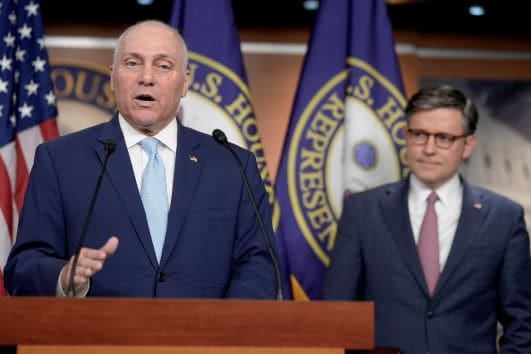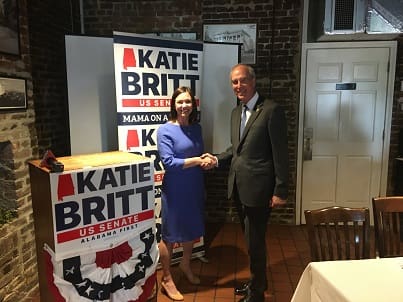Scalise and Johnson should follow Livingston’s example

(Nov. 17, The Advocate/Times-Picayune) As speaker and majority leader of the U.S. House, Louisiana’s Mike Johnson and Steve Scalise should take a cue from what Metairie’s Bob Livingston did beginning 30 years ago this week: Attack deficits and government bloat, hard.
As part of the so-called Gingrich Revolution that in 1994 won Republicans their first House majority in 40 years, Livingston suddenly and unexpectedly became chairman of the Appropriations Committee, which oversees all federal spending except mandatory recurring “entitlements” such as Social Security and Medicare.
Then-President Bill Clinton had submitted budgets that projected annual deficits of $200 billion, a then-unimaginable amount, for each year of a five-year budget plan. Livingston and company were determined to achieve a balanced budget within seven years — a goal many considered out of reach.
Livingston persisted and was proved right. Between operating budget savings (which he willed into being against fierce opposition), welfare reforms that Congress passed two years later and robust economic growth that the Washington establishment thought impossible, the Gingrich Congress balanced the federal budget in just four years — and kept it balanced for another three thereafter.
Because Livingston trimmed fat, not necessities, the American economy grew without painful cuts.
Now, facing a massively worse budget situation than the one Livingston faced, Johnson and Scalise should fight to reduce America’s runaway debt with the same fervor that Livingston summoned to curtail excessive spending.
In 1994, America’s ratio of debt (including intragovernmental debt) to gross domestic product was 47.35%, which seemed insanely large at the time. Today, the debt-to-GDP ratio is a staggering 122.3%, well into the danger zone that historically has triggered economic crises. That’s why Johnson and Scalise must regard budget constraints as an imperative.
Besides, there’s plenty of fat to cut.
Domestic discretionary spending was $250 billion in 1994, which seemed extravagant then. Net of inflation, that equals $514 billion in 2023 — the last year for which final spending numbers are in. Tied to population growth since 1994, such spending would be $654 billion in 2023. Yet, the federal government in 2023 actually spent $943 billion on domestic discretionary items.
With Republicans now controlling the House, Senate, and presidency, there’s no reason why those accounts can’t be trimmed…. [The full column is at this link.]





